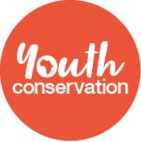The initiative “Acting for Nature Conservation – Educating and Empowering Future Eco-Citizens in Africa”, launched early 2025 in partnership with the Audemars Watkins Foundation and Play for Nature, is already showing promising results on the ground!
This initiative supports 10 NGOs actively working in Burkina Faso, Benin, Cameroon, Senegal, and Madagascar. Their shared mission: raising youth awareness about environmental preservation through educational and engaging activities.
Numerous initiatives have already been rolled out. Despite the intense heat and heavy rains, children and young people are enthusiastic, school administrators and teachers are highly involved, and the NGOs are more motivated than ever!
Today, we’re highlighting the many activities carried out by the NGO Burkina Djigui who has carried out an innovative approach to run his awareness program.
An Innovative Educational Response to Environmental Emergencies
In the face of major environmental challenges such as deforestation, desertification, and poor waste management, the primary goal of the “Environmental Education” project was to foster a lasting transformation in behavior—especially among youth aged 7 to 17, who are often excluded from traditional eco-citizenship training. The program was based on an innovative cascade learning strategy: a core group of volunteers and teachers received in-depth training to relay knowledge and best practices across partner schools, ensuring widespread dissemination of environmental awareness messages.
Concrete Actions in Schools to Embed Good Practices
The activities were implemented in four institutions: KUA C Primary School in Bobo-Dioulasso, Bissighin B School in Ouagadougou, Gogaré B School in Tenkodogo, and the Vocational Education and Training Center (CEFP) in Gampéla, Saaba. Practical actions included the training and mobilization of 50 teachers in environmental education, interactive awareness-raising sessions for 2,046 students, participatory planting of 30 trees, installation of 20 recycling bins, a school clean-up day, and the creation of an educational nursery with over 200 moringa pots and 125 direct-seeded mango trees—strengthening both students’ and teachers’ technical skills.
Visible Impacts and Change Driven by Collective Engagement
The project analysis highlights several major successes. The participatory and inclusive approach fostered strong local synergy, actively involving teachers, parents, volunteers, and school administrations. All teachers achieved a 100% success rate on online assessments via the Youth Conservation platform and showed a real commitment to integrating ecological content into their lessons, becoming true agents of change. The combination of theoretical workshops and hands-on activities (tree planting, waste sorting, nursery management) led to a deep understanding of ecological messages, resulting in visible improvements to school environments and a collective awakening to environmental issues. Remarkably, the impact extended beyond school walls—students reported starting to sort waste at home and raising awareness among family members, indicating a lasting behavioral shift within communities.
Turning Structural Challenges into Learning Opportunities
While early results of the “Environmental Education” project are promising, several challenges were encountered during implementation, providing valuable insights for future improvements. The main obstacle was limited financial resources, which restricted the number of activities, equipment, trained teachers, and sensitized schools, as well as the long-term sustainability of the actions taken. Nevertheless, these challenges were not viewed as failures but rather as practical lessons that will feed into the continuous improvement and refinement of the project in the years ahead.
If you want to know more about this NGO, you can reach them by email djiguiburkina@gmail.com and/or follow them on Facebook.





